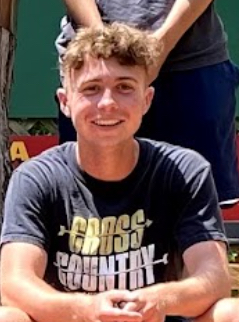The Growing Student Entrepreneur
May 9, 2021

Imagine being a sophomore in college. You’re only 19 years old, and are enrolled at one of the most prestigious schools in the world. You’re an extremely talented computer programmer and, just for the fun of it, you decide to create a program to help other students find study groups. You decide to take this program a step further, and end up generating a matchmaking site with your friends. This website, as it turns out, will soon become one of the largest social networking sites on the internet: Facebook.
When someone hears the term “student entrepreneur,” the first people that come to mind tend to be Bill Gates or Mark Zuckerberg. These are two men who started tech empires while they were only in college to become some of the wealthiest and most successful people in the world. But in the age of social media and “grind” culture, future Mark Zuckerbergs have begun their professional careers as early as their freshman year of high school.
Norwin High School is full of talented individuals who have already started businesses. Through a variety of means, these Knights, whether photographers or barbers, are paving the way for a new era of student entrepreneurship.
One such Knight is sophomore Summer Federovich, a professional photographer with a sizable social media presence.
“Something about photography and the art of it is so beautiful to me,” said Federovich. “I’m so inspired by my friend photographers and other artists.”
Federovich has been working on her photography skills for a while, but over the course of the past year has expanded her horizons.
“I’ve been taking pictures all my life,” said Federovich. “It wasn’t until the beginning of quarantine, though, that I was serious about this passion!”
Federovich isn’t alone. On the other end of the entrepreneurial spectrum is junior John Long, a barber.
“I was about 14-15 and always cut my own hair and found an interest in cutting others,but never had the quality or the time,” said Long. “I find the value of making someone’s day and being the one who took time to put a smile on someone.”
Long admits that despite starting out his business purely for income, he soon found out that barbering was something more for him.
“At first, I really did it for the money,” said junior John Long. “But after being consistent and getting a few designs in some of my clients, I found a passion.”
Both Federovich and Long opened up about the challenges and rewards that come with pursuing one’s passions.
“It’s difficult starting young because people won’t believe in you,” said Federovich. “People will doubt you and belittle you for anything. I really do think these comments were what pushed me more and more to keep doing what I love.”
“Barbering on my end is hard… I say that because when I first started it took me hours to accomplish one haircut and to claim to be a great barber is to be consistent,” said Long. “But it’s also fun seeing a great transition in your work.”
This is all great… but why does it matter? How do younger people pursuing passions affect society at large? What is the impact of students like Federovich and Long?
In an article from Time Magazine in 2011, Scott Gerber wrote that: “Junior Achievement and the Aspen Institute found that youth-entrepreneurship programs positively impacted dropout rates and community engagement, not to mention the development of risk taking and opportunity recognition.”
Gerber, a youth entrepreneur himself, is a strong proponent of younger generations taking up passions and monetizing their work. In this new digital age, those with a foot in the door earlier on will reap the benefits later down the line.
“One study found that small-to-medium businesses with strong Web presences grew twice as fast as those with only a minimal presence (or none at all) and created twice the number of jobs,” said Gerber.
Gerber’s research in youth entrepreneurship has helped to shed light on the profound long term effects of taking up hobbies and converting them into careers. Student entrepreneurs, such as Federovich and Long, demonstrate a plethora of skills that Gerber has observed to indicate higher rates of future success.
“Adaptability, creativity and financial literacy are core skills for American employees and so-called intrapreneurs — innovators within larger organizations — as well,” said Gerber. “They’re also critical assets to our communities: Junior Achievement and the Aspen Institute found that youth-entrepreneurship programs positively impacted dropout rates and community engagement, not to mention the development of risk taking and opportunity recognition. But most employers today think high school and college graduates are seriously deficient in skills like leadership and innovation, and Americans face a steep shortfall of graduates majoring in science, technology, engineering or mathematics.
But monetizing one’s passion is not the whole of it… it’s the act of pursuing that passion.
“The art of photography is so beautiful,” said Federovich. “It’s not just clicking a button… There’s so much to it!”
If anyone should have one takeaway from Federovich and Long, it should be this: follow your dreams. As cliche as that is, it’s the truth. If you want something, go after it. See where it takes you. Maybe you don’t get the desired result, and maybe you’ll want to quit. But you’ll be better for having tried it, and developed skills that will have long-term benefits.



